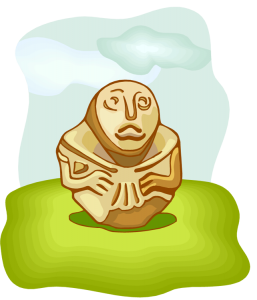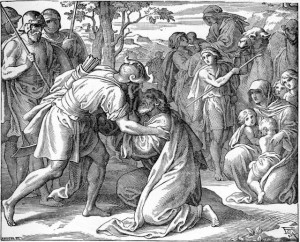Genesis 25:27–28, Esau vs. Isaac. There are only two types of people on this earth: Esaus and Jacobs. Ponder or discuss this for a moment. Consider, for example, the fact that hanging on either side of Yeshua on the cross, spiritually speaking, there was a “Jacob” and an “Esau.” (Read Luke 23:39–43 and discuss.) We see the same thing in Matthew 24:39–41. (Discuss.)
What type of person was Esau? He was described as a cunning hunter. Nimrod was the only other person in Scripture termed “a hunter.” What kind of person would a hunter have been then compared to a farmer or herdsman? Esau was a man of the field. Field in Scripture is a metaphor for the world (see Matt 13:38). Esau was a profane (unhallowed, worldly, ungodly) man (Heb 12:16). He had no esteem for things of eternal value. That is why he sold his birthright. He lived for the moment and had no eye for, hope in, or faith toward the future. He sought instant gratification of his sensual nature. His god was his belly. He disdained and dishonored his family heritage and those things that were highly esteemed by his father and grandfather. In Gen 26:34–35, we see, to the great grief of his parents, Esau marrying one of the local heathen Canaanite girls. He did not honor his parents or respect their wishes and marry inside the faith.
Do these traits describe some unbelievers that you know, and even some believers? Perhaps you were like this before you were saved. Do we see many Esau-types running around among the younger generation today?
Genesis 25:30, Esau…Edom. Many, if not most of the modern Moslems (especially the Arabs) trace their lineage back if not biologically then spiritually to Continue reading








